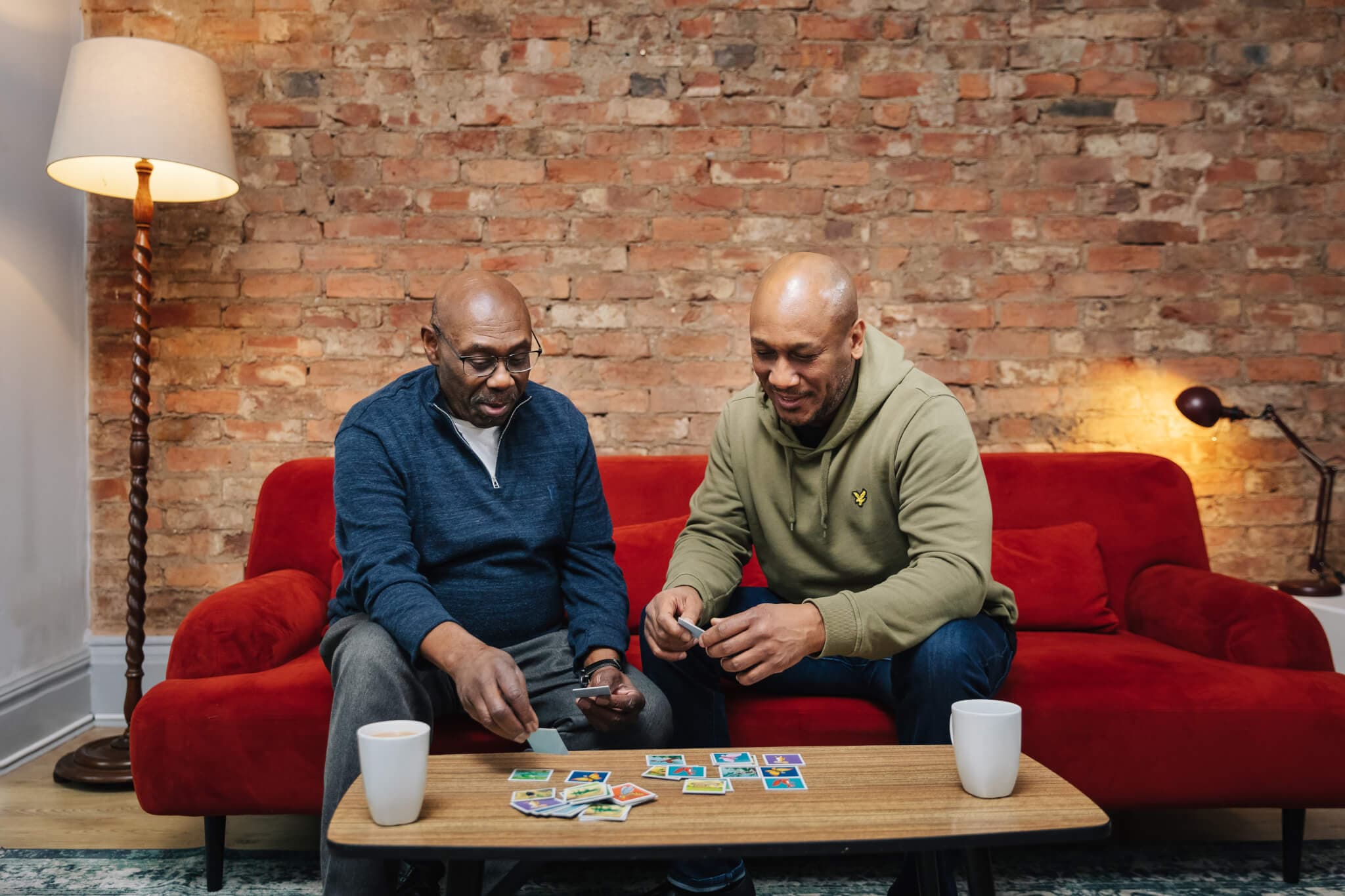Dealing with the daily challenges of dementia

It’s possible to live a long, rich life with dementia, but as the disease progresses some daily tasks become more and more of a challenge. Here is some advice for tackling them together with your loved one.
Alzheimer’s disease and dementia of all forms can have unexpected impacts on every facet of life. We believe that living independently at home can help people live their best lives, but to do that there are various challenges to overcome. Our Care Professional can help with these, and get in touch to talk about arranging for some extra help at home, but there are also a few steps you can take to help make living at home easier.
Eating
- Diet is crucial to wellbeing, and can be neglected in dementia patients. Take a look at our series on nutrition in seniors: 10 myths about elderly nutrition, warning signs of a poor diet, and how to deal with malnutrition in seniors. The most important thing is to remind your loved ones to eat regularly, help them plan meals and ensure they’re eating.
- Use plates, cutlery and a tablecloth that contrast clearly, and aren’t covered in complex patterns. Store food in clear plastic containers, and label cupboards.
- Sometimes large meals can feel overwhelming. Suggest a schedule of more regular, smaller meals.
- Eating together regularly is one of the best things you can do. This will not only help you keep an eye on nutrition and offer help when its needed, but the social benefits of eating together are huge.
Dressing
- Label cupboards clearly with their contents, and try to keep them uncluttered. Too many clothes can be distressing, so try to arrange cupboards and drawers in a way that limits choices, and is very clear and easy to see.
- It can be very frustrating for people to struggle with the motor skills of getting dressed, so help where you can. Remember, you don’t need to insist they wear what you think is best, you should just help them look after their own appearance.
- Encourage clothes that are easier to manage, such as those with Velcro instead of laces.
- Clothes that are easy to put on and take off will make both dressing and trips to the bathroom much easier.
In the bathroom
Washing and going to the toilet is intensely private and one of the hardest things to ask for help with. Make the bathroom as easy to use and safe as possible, with a few modifications:
- Hand rails, a seat in the shower, and anti-slip mats are a great help if a person is still able to wash independently.
- If you are helping someone wash, you can help preserve their privacy by placing a towel over their lap, and using a sponge or washcloth to wash sensitive areas.
- Explain what you’re doing as you do it, so that your loved one can feel in control and make any requests or suggestions.
- Incontinence problems are very common as Alzheimer’s and other forms of dementia progress. Put a large sign on the toilet so it’s easy to find, and keep the door open so it’s easy to see inside when someone is looking for it.
- Watch for signs that someone might need the loo. Restlessness and tugging on clothing can indicate that someone needs the toilet. Try to keep an eye out for trigger words or phrases that your loved one often uses to indicate that they need the toilet. Don’t wait to be asked, consider taking them every few hours even if they haven’t asked.
- Accidents will happen. Be prepared and do your best to take them in your stride.
Living with dementia isn’t easy, and routine activities can become tough, but with some forward planning, and plenty of patience, it’s possible to deal with the challenges.